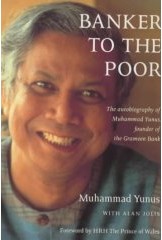Bag Lady's Crusade: Plastic BagsFirst, the phone call. A daughter of missionaries in Kenya (she had actually just cashed in her British Air tickets) contacted me and wondered if I was still planning to go to Kenya on February 20. If so, would I be able to take in about 50 lbs. of fabric donated by the quilters’ group at the church? I hadn’t decided. I wasn’t fearful of the violent unrest that followed the elections in Kenya (1000 people killed and 300,000 displaced), but I wasn’t sure this was the optimum time for me to do the microenterprise research that had impelled me to arrange this trip in the first place. But suddenly, standing in my bedroom, with the phone receiver in hand, I felt this strong, firm direction that I should, indeed, proceed as planned. All right, Lord, I prayed. I need an exterior verification of this interior nudge. I want to be sure I am doing what You want me to do. If there is an e-mail from Lois Shaw in the office tomorrow morning, telling me to come, I will trust that this is in Your plan. Lois was my land contact in Nairobi, and I had e-mailed her weeks before but had not heard anything back. The next morning, there was the e-mail from Lois. “I write from our beloved Kenya. I do hope you are still coming in spite of all our bad news. We need you now more than ever. I have set up a number of interviews as well—the stories are wonderful right now. We will also take you to Amani ya Juu (a cottage industry that supports some 60 refugee women who create attractive, high quality products made out of local African fabric—kitenge, batik and tie-dye) and (Lord willing) into one slum site.” Now no doubt lingered in my mind. I definitely would use my booked ticket and head to Kenya. My desire to gather those stories was as real and visceral as hunger or thirst! This is what I planned originally to do upon visiting Kenya, where I will be staying at the Guest House at NEGST, the Nairobi Evangelical Graduate School of Theology. First, I wanted to investigate how proficient seamstresses could improve the sewing skills of grad students and seminary wives so they would be able to establish sustainable incomes for their families once schooling was finished. This, I hope, would eventually become a work and travel project under Journeys for Hungry Souls. (Another Journeys for Hungry Souls sewing project in Mexico is being formed by Melodee Cook and her Covenant Group. They will be traveling to Oaxaca in April.) In addition, my Covenant Group kicked around a microenterprise venture where canvas bags for grocery store shopping would be designed and created in Africa with a logo that might read, “THIS IS A DESIGNER BAG. These sturdy bags would be marketed in American churches to their constituencies and service organizations as part of our individual and Christian responsibility to be good stewards of the earth. Proceeds, of course, would be returned to the African grandmothers. I have a vision of thousands of Christians in the U.S. toting these bags into markets and grocery stores, advertising the needs of our sisters in another land, making other shoppers aware of a simple solution to the devastating ecological footprint of both plastic and paper bags, and showing that church-people don’t just sit aside and let the world go to rack and ruin. No, we do the things that we can do, the small things that can make such a huge difference. If Americans use reusable cloth bags for the grocery store and the dry cleaners, we will prevent more than 100 billion plastic bags from being thrown away each year. Why is that so important? It is important
because:
“I’ll just use paper bags, then,” some of you may be thinking. Guess what? The ecological footprint of paper bags is even worse than plastic. Once I saw the statistics, I went roaming around local garage sales, buying as many sturdy canvas bags for 35 and 50 cents as possible. “How many of your customers use cloth bags?” I questioned the check-out clerk at my local grocery store. “Oh, about five or six.” All the check-out clerks think bringing your own bag is a really good idea, and despite the racks holding cloth bags at Trader Joe’s and Borders and Jewel-Osco, I haven’t seen many shoppers refusing the plastic. When I ran the idea of developing this into some kind of microenterprise venture for African women past Lois Shaw, she exclaimed, “Oh, plastic bags are an anathema in developing countries!” So by the time you read this Soulish Food, I will have been in Africa and returned home. My mind is filled with potentialities. I bid your prayers. “Whatever you can do, or dream you can, begin it. Boldness has genius, power and magic in it.” -- Goethe Soulish Food!Sorry to be negligent in sending out issue 7-4 of Soulish Food! Our wonderful volunteer, Sally Craft, has moved with her husband Andrew to Vancouver, and it has taken a little while for Susan Hands to receive the necessary training to take over the Soulish Food e-mailing list. Stratford Shakespeare FestivalJuly 7 - 12, 2008 The cost for six plays, 5 nights housing in delightful B&B's, chats with the actors, picnic along the Avon, lunch with the Mainses, delightful mind-challenging conversations each morning over breakfast is $1100 per person per shared room ($300 extra for a single room). A $500 deposit will reserve your place. We must have all reservations by May 2008 and full payments by June 1, 2008. Respond to David Mains () as soon as you know your plans; that will help us greatly. We have 4 B&Bs reserved and almost filled and will have to reserve another if our count goes higher. Bravo for the Bard! Reminder!The Soulish Food e-mails are being posted biweekly on the Hungry Souls Web site. Newcomers can look that over and decide if they want to register on the Web site to receive the newsletter. You might want to recommend this to friends also. They can go to www.HungrySouls.org. |
 Karen Mains "Whatever you can do,
or dream you can, begin it. Boldness has genius, power and magic in it." 2008 Pilgrimage to France
God Through the
Eyes of the Artist and the Artist In the Eye of God October 24 - November 10, 2008 Recommended Reading
Banker to the Poor:
The Autobiography of Muhammad Yunus |